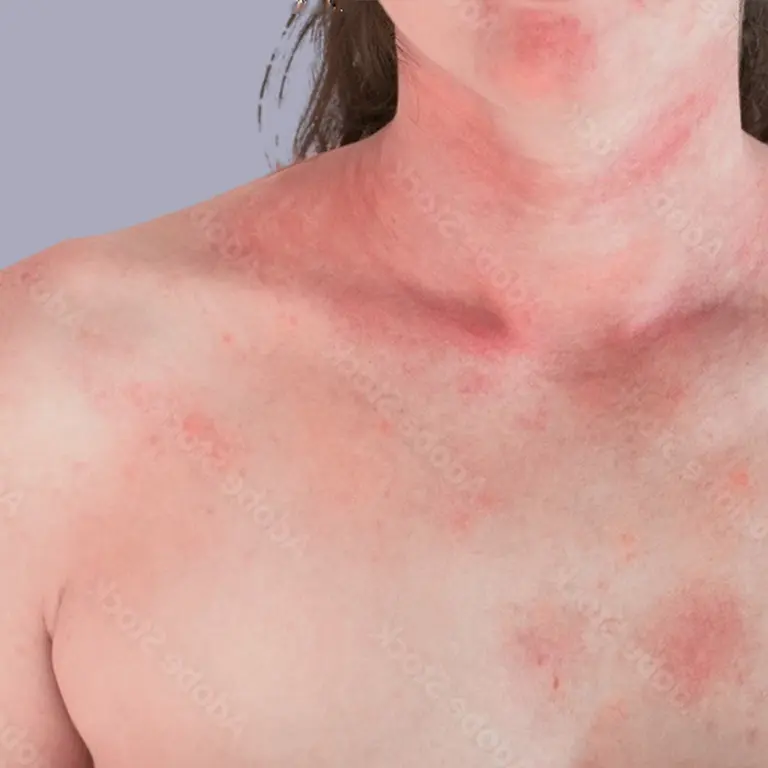Eczema
The main symptom of atopic eczema is patches of skin that are itchy, dry, cracked and sore.
Treatments for atopic eczema include emollients (moisturising treatments) and steroid creams.
You're more likely to get atopic eczema if you have allergies or other family members with conditions like atopic eczema, asthma or hay fever.
Some people only have small patches of dry skin, but others may experience widespread inflamed skin all over the body.
Inflamed skin can become red on lighter skin, and darker brown, purple or grey on darker skin. This can also be more difficult to see on darker skin.
Although atopic eczema can affect any part of the body, it most often affects the hands, insides of the elbows, backs of the knees and the face and scalp in children.
People with atopic eczema usually have periods when symptoms are less noticeable, as well as periods when symptoms become more severe (flare-ups).

Medical treatments
Treatment for atopic eczema can help to relieve the symptoms and many cases improve over time.
But there's currently no cure and severe eczema often has a significant impact on daily life, which may be difficult to cope with physically and mentally.
There's also an increased risk of skin infections.
Many different treatments can be used to control symptoms and manage eczema, including:
self-care techniques - such as reducing scratching and avoiding triggers
emollients (moisturising treatments) – used on a daily basis for dry skin
topical corticosteroids – used to reduce swelling, redness and itching during flare-ups
Systemic medication for severe cases of Eczema. These medications require monitored care, involving blood testing. Browns Clinic Dermatology provides this service.
